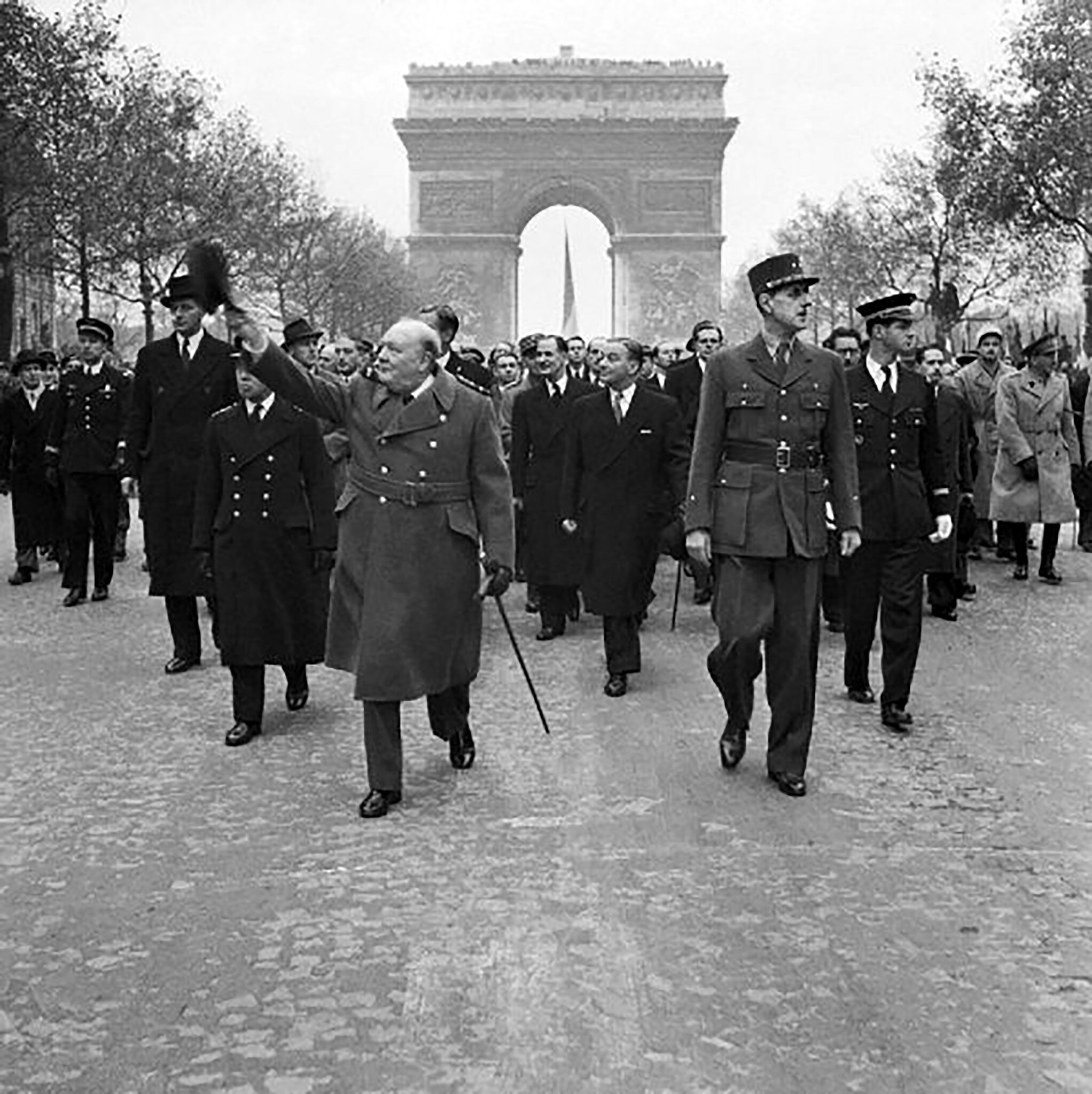How Churchill and De Gaulle Foresaw Brexit
The British could never entirely side with the Europeans. Or, at least, that is what Winston Churchill told Charles de Gaulle. On the eve of D-Day in June 1944, Churchill received an impromptu visit from the French general. De Gaulle was outraged that French troops were not included in the Normandy landings that would liberate France and Western Europe. “Get this quite clear,” an impatient Churchill roared back, “every time we have to decide between Europe and the open sea, it is always the open sea we shall choose! Every time I have to decide between you and Roosevelt, I shall always choose Roosevelt!” The future French president never forgot that warning.
When the U.K. left the European Union this past January 31st, many saw it as a historical anomaly. The “Remainers” lamented Brexit as something that should not have happened if the British people had been “well-informed.” But looking back, the British vote to leave the union was just a confirmation of a deeper reality which Churchill understood: Britain had been fighting against continental Europe, commercially, diplomatically or militarily, for much of 800 years. Tension has been the norm; union the anomaly.
Roosevelt, Stalin, and Churchill all disappeared from the political scene by 1955, as did Eisenhower by 1961. De Gaulle was therefore one of the last victors of World War II to remain in power—for almost another decade. In conducting European treaty negotiations with Prime Minister Harold Macmillan, his old British colleague from wartime in North Africa, de Gaulle saw Churchill’s prophecy realizing itself and dictating all of the interactions:
In 1958, Macmillan told me “It’s to prevent the union of the Europeans that we went to war with you for twenty-three years during your Revolution and your Empire… We will not accept the unity of the continentals, we have never accepted it in the past!” … Now, they are trying to blow it up from the inside through the Dutch and the Belgians. If they do not succeed that way, they will try to paralyze it after getting admitted themselves. Don’t worry, they have coherence in their ideas.
Naturally, when Harold Macmillan asked for British membership of the European Common Market in 1961, de Gaulle feigned ambivalence for two years, then spectacularly gave his veto on television for the whole world to see. The decision had already been made for him ever since the D-Day dialogue revealed Britain’s hand of cards—and why would it change? According to the late British historian and diplomat Peter Mangold, the cards still showed him that “Britain was a threat on two counts—as a rival for European leadership and as a potential American Trojan horse in the General’s projected European citadel.” The Europeans wanted nuclear independence, yet one of the incentives Macmillan had floated at the Nassau talks in December 1962 was an integrated multilateral nuclear force led by Kennedy—which is the opposite of what de Gaulle and Konrad Adenauer wanted for a strong, sovereign Europe. Moreover, British desire to include the Commonwealth in the Common Market was not even a possibility they would remotely consider.
In turn, most of the negotiations that were held between Britain and Europe from 1963 until today can be summarized by Churchill’s prophecy. Every time the E.U. took a step towards deeper integration—for example, the 1985 Schengen Agreement, the 1992 Treaty of Maastricht, and the 2008 Treaty of Lisbon—the British have displayed a skeptical or openly reluctant attitude. For Oxford professor Martin Conway, this simply reflects the belief in “Imperial preference, the perceived need to avoid continental military entanglements, the lure of the Anglo-American partnership and the strange delusions generated by the centrality of London to the financial institutions of an increasingly global capitalism.” It is therefore no surprise that the U.K. opted out of European common currency, freedom of movement, social policy, the jurisdiction of the European Court of Justice—and now, the European Union altogether.
History teaches us to not be surprised, and most of all, to not pass judgement. What de Gaulle profoundly believed was that old national instincts are the only international realities. In that sense, Brexit was not extraordinary, it was just Britain continuing to be Britain, as it had done for eight centuries. As de Gaulle joked during a speech at Oxford in 1941: “Wouldn’t it have sufficed to say that England is an island?”
Elias Forneris is a graduating senior in the Dual B.A. program between Columbia University’s School of General Studies and Sciences Po Paris. He majored in Modern European History and Middle Eastern History.
This article was submitted to CPR as a pitch. To write a response, or to submit a pitch of your own, we invite you to use the pitch form on our website.

